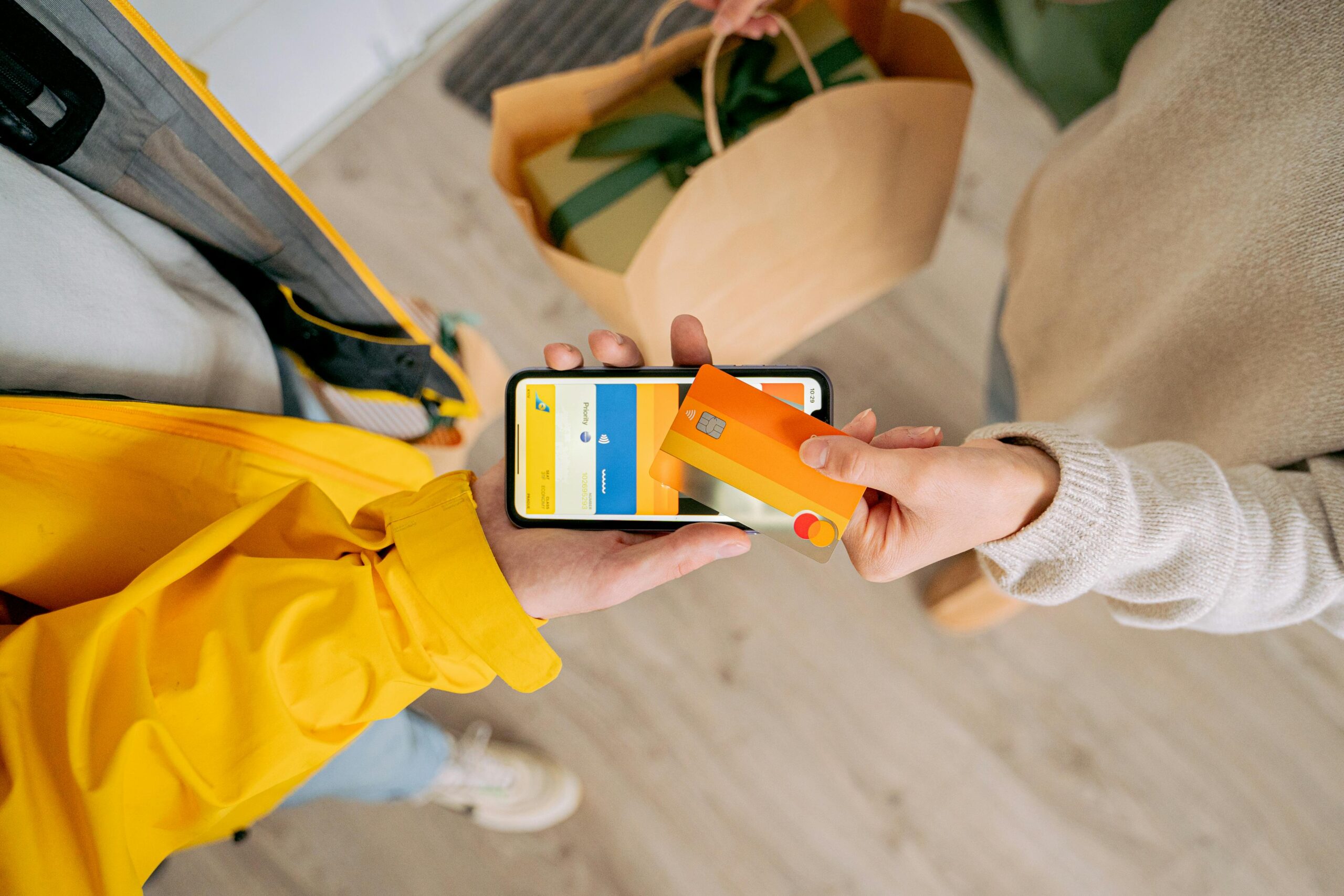Trust has always been the invisible currency of commerce.
Before online shopping, we relied on face-to-face interactions, store reputation, and word-of-mouth to feel confident about our purchases.
But in the digital age, where products are bought with a click and fraud risks rise with scale, trust has become harder to earn — but even more critical.
Enter blockchain technology , quietly transforming how buyers interact with brands by offering transparency, security, and traceability like never before.
In this article, we explore:
- How blockchain builds buyer trust without buyers realizing it
- Why smart contracts and decentralized systems matter for eCommerce credibility
- Real-world examples from Shopify, Amazon, and Alibaba
- The future of blockchain-driven customer loyalty
Let’s dive into how Blockchain and Buyer Trust are shaping the next era of online shopping
Why Trust Is the New Currency in eCommerce
When you’re buying something online, you’re not just handing over money — you’re giving up control.
You trust:
- That the product will arrive as described
- That your payment data won’t be misused
- That return policies are real
- That reviews aren’t fake
And when that trust is broken — even once — it can cost a brand dearly.
Psychological Insight: The Role of Transparency in Building Confidence
According to behavioral studies, consumers are 60% more likely to complete a purchase if they feel informed and secure throughout the transaction.
That’s why brands are turning to blockchain — not just for tech innovation, but for emotional assurance .
Because in the world of online retail, transparency isn’t optional — it’s essential.
What Is Blockchain (and Why Does It Matter for Online Sellers)?
At its core, blockchain is a decentralized, tamper-proof digital ledger — best known for powering cryptocurrencies like Bitcoin and Ethereum.
But beyond finance, blockchain is reshaping how businesses operate — especially in supply chain management , product authenticity , and customer data handling Key Benefits for eCommerce:
| Feature | Benefit |
|---|---|
| Immutable records | Buyers can verify product origin and journey |
| Smart contracts | Automate refunds, returns, and loyalty rewards |
| Transparent supply chains | Reduces skepticism around sourcing and ethics |
| Secure payments | Lowers risk of fraud or identity theft |
| Decentralized identity verification | Gives customers control over their own data |
These features don’t just improve operations — they build a foundation of trust at every stage of the buyer’s journey .
5 Ways Blockchain Is Quietly Changing Buyer Trust
Here’s how blockchain is influencing consumer confidence — often behind the scenes.
1. Verifying Product Authenticity
Luxury goods, pharmaceuticals, and collectibles have long struggled with counterfeits.
Blockchain solves this by allowing:
- Brands to tag items with unique digital IDs
- Buyers to scan and confirm authenticity
- Resale markets to verify ownership history
Example:
- LVMH’s AURA Blockchain lets customers verify luxury item provenance in real time.
- Nike uses blockchain for sneaker authentication , reducing counterfeit concerns.
This reassurance builds long-term brand loyalty — and deters fake sellers.
2. Transparent Supply Chains
Consumers today care about:
- Ethical sourcing
- Fair labor practices
- Environmental impact
Blockchain allows brands to provide end-to-end visibility into how and where products are made.
Example:
- Everledger tracks diamond origins to prevent “blood diamonds”
- Provenance helps small brands show ethical production steps via blockchain
- Walmart uses blockchain to track food safety , improving buyer confidence in grocery delivery
When shoppers know where their product comes from — they’re more likely to buy again.
3. Smart Contracts for Hassle-Free Returns
One of the biggest barriers to online shopping is fear of poor return experiences.
With smart contracts , returns can be fully automated:
- Refunds triggered upon scanning a return label
- Exchange options suggested based on past behavior
- Loyalty points added instantly after resolution
This eliminates disputes and builds trust through efficiency .
4. Decentralized Identity Management
Buyers are increasingly wary of how their data is used.
Blockchain enables self-sovereign identity , meaning:
- Customers own and control their personal information
- No need to re-enter sensitive data repeatedly
- Reduced risk of data breaches affecting user profiles
Platforms like SpringRole and uPort are already experimenting with these models — making online shopping safer and more respectful of privacy.
5. Verified Reviews and Feedback Systems
Fake reviews are a growing problem in online shopping.
Blockchain-based review systems allow only verified buyers to leave feedback — ensuring:
- Genuine customer insights
- Reduced manipulation
- Increased trust in peer opinions
Some marketplaces are now using decentralized reputation scores — so users aren’t judged solely by anonymous five-star ratings
Real-World Examples of Blockchain in Action
Let’s look at some real-life implementations that are changing how people view online stores.
Shopify & BigCommerce: Exploring Web3 Integration
Shopify has partnered with several NFT and crypto wallets to help merchants offer:
- Limited-edition drops tied to NFT ownership
- Transparent shipping and product tracking
- Secure checkout experiences
While still early, these integrations hint at a future where trust is baked into the shopping experience .
Amazon: Tracking Inventory With Precision
Amazon is exploring blockchain-powered logistics to ensure:
- Faster delivery
- Better inventory accuracy
- More reliable supplier vetting
This reduces buyer uncertainty and increases perceived reliability — which directly boosts conversion rates .
Alibaba: Fighting Counterfeits at Scale
Alibaba uses blockchain to:
- Track product manufacturing
- Verify seller credentials
- Ensure fair trade practices
This gives global buyers peace of mind — especially when purchasing from unfamiliar suppliers.
Why This Matters for Small Businesses and DTC Brands
You don’t have to be Amazon or Nike to benefit from blockchain.
Smaller brands can use blockchain tools to:
- Build trust faster than big competitors
- Show authenticity and transparency
- Reduce friction in returns and exchanges
- Enhance customer lifetime value
For example:
A handmade skincare brand could use blockchain to show ingredient sourcing — giving buyers confidence in what they’re applying to their skin.
Frequently Asked Questions (FAQ)
Q: What is blockchain in eCommerce?
A: It’s a secure, decentralized record-keeping system that enhances transparency, authenticity, and trust in online transactions.
Q: Can blockchain really improve buyer confidence?
A: Yes — by offering verifiable proof of product quality, ethical sourcing, and smooth post-purchase support.
Q: Do I need to accept cryptocurrency to use blockchain?
A: Not necessarily. You can use blockchain for tracking and verification without selling crypto.
Q: Will blockchain replace traditional payment gateways?
A: Unlikely — but it will enhance them by adding layers of security and transparency .
Q: Is blockchain too complex for small businesses?
A: No — many platforms now offer plug-and-play solutions for inventory tracking, product verification, and customer identity.
Final Thoughts
The blockchain revolution in eCommerce may be silent — but it’s powerful.
It doesn’t demand attention like flashy ads or viral campaigns — instead, it builds invisible trust at every step of the customer journey.
From verifying product claims to streamlining returns and protecting personal data, **blockchain is becoming the backbone of modern buyer confidence.
Because in a world full of digital noise, transparency speaks louder than marketing .
So whether you’re running a DTC brand , a global marketplace , or a small Shopify store , consider how blockchain can silently strengthen your relationship with customers.
Because sometimes, the most powerful way to earn trust…
Is to prove you deserve it — without saying a word .










